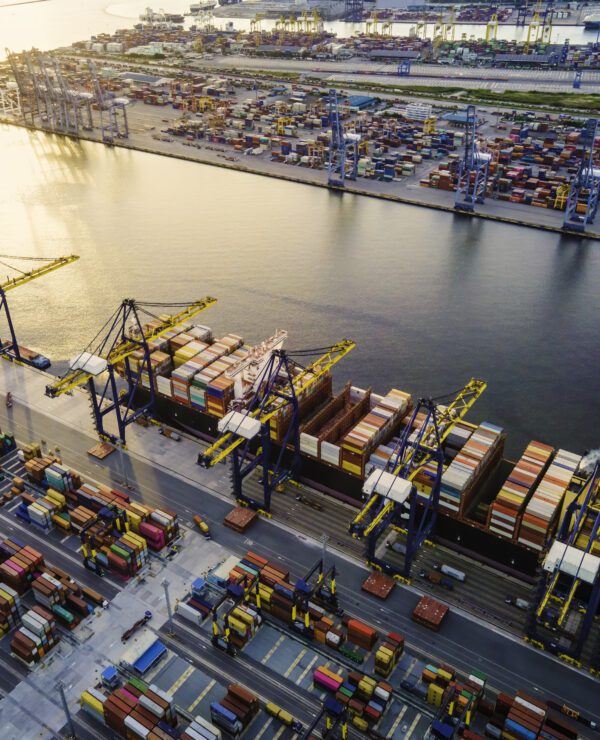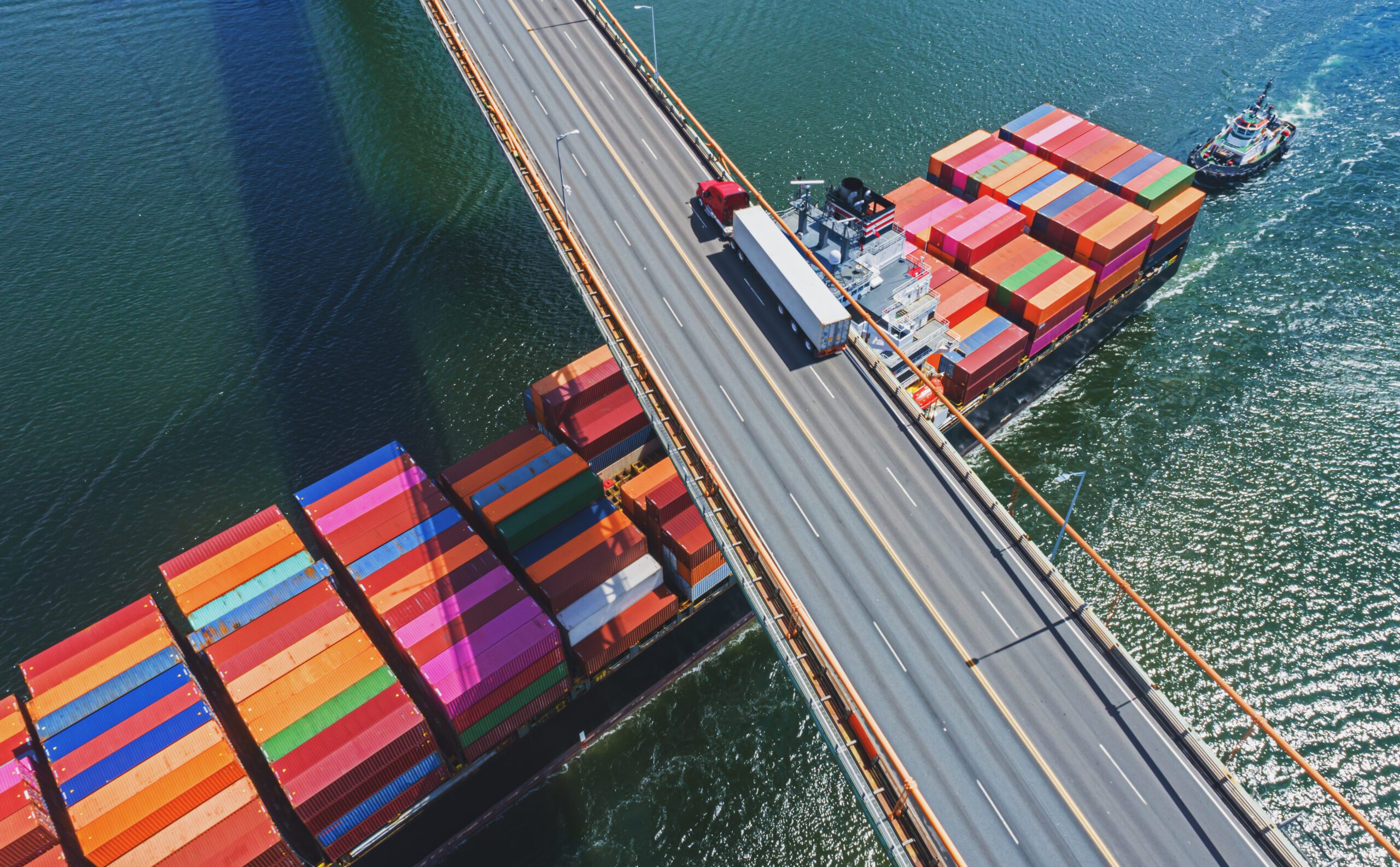Authors
Partner, Corporate, Toronto
Partner, Tax, Toronto
Counsel, Disputes, Toronto
Associate, Competition, Trade & Foreign Investment, Toronto
Associate, Disputes, Toronto
As we head into 2025, developments in modern slavery reporting, supply chain diligence and human rights enforcement in 2024 underscore the need for companies to be live to all manner of compliance issues throughout their supply chains, as well as the increasing risks arising from a failure to do so. The continued focus on this area should be expected to lead to increased enforcement in the coming years.
To mitigate the risks of both legal consequences and reputational damage, it will be critical for companies to understand where and with whom they do business, and to ensure they have processes and procedures in place to address such matters, and to regularly update information obtained.
Modern slavery reporting and diligence obligations
As discussed in our previous Osler Legal Outlook article, on January 1, 2024, Canada’s Fighting Against Forced Labour and Child Labour in Supply Chains Act (Modern Slavery Act) came into force. That Act, among other things, introduced a reporting obligation on certain public and private entities that produce goods in or import goods into Canada, or that control entities that do so.
May 31, 2024, was the first filing deadline for reporting entities and institutions. According to a report tabled by the Minister of Public Safety, Democratic Institutions and Intergovernmental Affairs to Parliament, 5,795 reports were filed on or before the May 31 reporting deadline; 5,650 by private sector entities, and 145 from government institutions. The Minister maintains a registry of filed reports.
In order to facilitate the first round of reporting, Public Safety Canada issued interpretative guidance in mid-December 2023 and subsequently updated this guidance in March and again in November 2024. The November update reflects feedback provided to Public Safety Canada by entities and others involved in preparing reports under the Modern Slavery Act. The updated guidance addresses some of the more common questions that arose in the first reporting cycle, although some ambiguity remains in other areas. Among other things, the guidance indicates that only entities that produce goods in Canada, import goods into Canada or control another entity that does so are expected to report under the Act such that, despite certain express language in the Act to the contrary, entities that only sell or distribute goods are not required to report.
Given the relatively short period of time between the Modern Slavery Act coming into force and the initial reporting deadline, Public Safety Canada, which oversees compliance, indicated that it was prioritizing education over enforcement measures in at least the first year of reporting. It also seems likely that the focus on education rather than enforcement will continue for the coming reporting cycle, although Public Safety Canada has provided no definitive guidance in this regard.
The Modern Slavery Act is primarily a reporting statute, although it also includes an import ban and a framework for enforcement. In-scope entities and institutions must report on the matters covered by the Act, but it does not require them to take any particular action with respect to supply chain due diligence or human rights. It therefore relies on transparency to encourage better practices, as acknowledged by the government in its Legislative Summary [PDF]. In this way, Canada’s approach to mitigating the risk of forced labour and child labour in supply chains differs from that of certain other Western countries, such as Germany and France, which have implemented due diligence legislative frameworks. Due diligence legislation — unlike reporting legislation — requires in-scope entities to take certain steps to prevent forced labour in their businesses and supply chains.
The government has noted it intends to introduce legislation that would impose supply chain due diligence requirements on entities and institutions that are in-scope. It also intends to strengthen the import ban on goods produced with forced labour. This could require entities and institutions to which the new legislation applies to take positive steps to prevent the risk of forced labour or child labour in their supply chains. No such legislation has been tabled to date, though the federal government previously announced its intention to introduce such legislation by 2024. This commitment was reiterated in the 2024 Budget.
Given the current political climate, it is unclear whether such measures will in fact be introduced in the near term. At a minimum, it seems likely that issues relating to supply chain human rights and due diligence will remain on the agenda for the coming year. Businesses are strongly encouraged to consider both their supply chains and their compliance programs, given that this is an area of heightened global attention.
Canada Ombudsperson for Responsible Enterprise
The Canada Ombudsperson for Responsible Enterprise (CORE) was established in 2019 with a mandate to provide people with the ability to file complaints about possible human rights abuses arising from the operations of Canadian garment, mining, and oil and gas companies outside of Canada. CORE’s activity levels picked up in 2024. Most notably, CORE published its first two final reports in respect of investigations completed.
Businesses are strongly encouraged to consider both their supply chains and their compliance programs, given that this is an area of heightened global attention.
The first was in respect of Vancouver-based mining company, Dynasty Gold Corporation. The report concluded that human rights abuses had occurred at the Hatu Qi-2 mine in China, in which Dynasty holds a majority interest. The second report was in respect of Hugo Boss Canada Inc. CORE reported terminating a complaint regarding alleged relationships with Chinese companies that may be using or benefitting from Uyghur forced labour, in recognition of the settlement that the complainants and the company achieved through alternative dispute resolution.
In its report for the period from January 1, 2024 to March 31, 2024, CORE highlighted several key statistics about its operations. Notably, 60 new inquiries were received during the quarter. A total of 22 active complaints are under review. Complaints cover activities in a variety of countries around the world, including Asia, Africa and South America.
Following the completion of the initial five-year term for Ombudsperson Sheri Meyerhoffer, a new interim Ombudsperson, Masud Husain, has been appointed. It is unclear what impact, if any, the change in leadership at CORE may have on CORE’s investigations and go-forward approach. However, it is clear that CORE’s mandate is being actively pursued with significant interest from complainants and an active roster of investigations. Companies without robust supply chain monitoring and compliance programs may well become the subject of CORE scrutiny.
Supply chain scrutiny is not limited to human rights
Regardless of whether new supply chain due diligence legislation is introduced, it appears the trend towards increasing scrutiny of businesses and supply chains is not going away. This scrutiny is not limited to human rights issues. Companies face risk associated with all forms of economic crime within supply chains such as corruption, money laundering and sanctions violations. What is clear is companies that do not exercise adequate compliance measures throughout their supply chains can face significant criminal, civil, business and reputational risks.
These risks are underscored by a South Florida court’s US$38.3-million civil award in June of 2024 against Chiquita Brands International for payments made to a Colombian paramilitary organization. Risks are further reinforced by the laying of charges in France against a large industrial company and eight individuals, including the company’s former CEO, managers and Syrian intermediaries. The charges relate to terrorist financing and sanctions violations in connection with the company’s activities in Syria.
Compliance recommendations for the future
Compliance measures should be tailored based on the risks faced by each company and the available resources. There is no “one-size fits all” approach. However, there are several steps businesses can take to promote compliance throughout their supply chains.
Learn more about Osler’s Environmental, Social and Governance (ESG) practice.
Learn moreMost importantly, businesses should establish, review and update policies and procedures setting clear expectations for all representatives to act ethically at all times. This should include employees, directors, officers and third-party representatives. Failure to comply with these procedures should constitute grounds for discipline, up to and including termination of employment. Depending on the nature and risk profile of the business, it may be appropriate to implement a formal supplier code of conduct, or to formally extend obligations under internal policies to suppliers and contractors.
When dealing with counterparties, businesses should have formal procurement policies and processes. This should include know-your-client procedures. Businesses should, at all times, be aware of the counterparties with whom they do business. Various measures, including screening, are available to support this objective. Formal processes may include supplier questionnaires and related screening. Reviews should be updated periodically. Further scrutiny can be pursued through audit rights codified in supply contracts. Supply agreements should also contain appropriate compliance representations and warranties. Failure to comply with, or a breach of, such requirements may be grounds to terminate the commercial relationship.
As with any compliance program, training should be provided to ensure employees and representatives are aware of their compliance obligations under applicable policies. Where appropriate, businesses may also consider conducting such training for suppliers and contractors.
As we head into 2025 amid increasing government scrutiny, these measures continue to become increasingly important for companies to ensure compliance throughout their supply chains.



